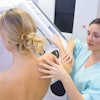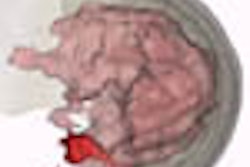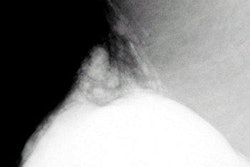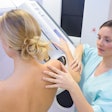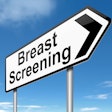The latest news on long-term outcomes in the Swedish mammography trials is a mixed bag: The reported risk reduction of death from breast cancer was as high as 42% in one arm of the study. But overall, the effects of breast cancer screening on women ages 50-54 was not as promising.
Dr. Ingvar Andersson from University Hospital MAS in Malmö, Sweden discussed the major findings of these trials at the 2001 European Congress of Radiology in Vienna. In total, nearly a quarter of a million women participated in five trials, which took place in Göteborg, Malmö (two trials), Stockholm and Östergötland. There were 129,750 invited participants and 117,260 women in the control group. Over a 16-year period, 11,000 cases of breast cancer were reported, according to Andersson.
The studies were similar in many respects, he said. They were all population-based and they were all randomized. Mammography was the only screening modality used.
"But there were some differences. For instance, randomization," Andersson said. "This has been a point of some criticism. The Östergötland, Malmö, and Göteborg studies were cluster-randomized, which means that there is a possibility of bias. So we took some data in Östergötland looking at the breast cancer incidence and mortality in the years preceding the screening." Specifically, the group studied breast cancer incidence and breast cancer mortality in the invited and control cluster areas from 1968 to 1982, Andersson told AuntMinnie.com.
"There was no difference between [that data], the control group, and the invited group in mortality or in the incidence of cancer. This supports the view that there was no bias using this type of cluster randomization," he said.
The outcome measure for these trials was death from breast cancer, information that was obtained through the Swedish Cause of Death Registry. The median follow-up time was 15.8 years.
According to the results, there was an overall 21% reduction in the risk of death from breast cancer in the invited group versus the control group. The effect was greatest in the group age 60-69, which had a 33% reduction in risk. In the under 50 group, there was an overall risk reduction of 30%, while in the Göteborg study alone, a 42% reduction in risk was reported, Andersson said.
However, among women age 50-54, the reduction in risk was 5%, with a wide 95% confidence interval.
"We can see that women [in this age group] don’t have as good an effect as the other age groups. There’s a much better effect in the higher and lower age groups. This trend also has been observed in other studies," Andersson said.
Most recently, the controversial Canadian Breast Screening Study determined that in women aged 50-59, the addition of annual mammography screening to physical examination had no impact on breast cancer mortality. In this randomized study, involving 39,405 women over a 13-year period, 107 deaths from breast cancer were reported in the mammography plus physical exam group, compared to 105 deaths in the physical exam group (Journal of the National Cancer Institute, September 2000, Vol.92:18, pp.1490-1499).
"If this is just by chance, or a real phenomenon due to the fact that these women are in menopause, we don’t know," Andersson said.
But in the long-term perspective, the results indicate that breast cancer screening can reduce mortality rates, Andersson concluded. In fact, the study's limitations -- including few screening rounds and single-view mammograms in two of the trials -- may have underestimated the benefits of screening, he added.
By Shalmali PalAuntMinnie.com staff writer
May 8, 2001
Related Reading
Mammography may save twice as many lives as previously thought, April 24, 2001
Canadian breast screening study draws praise and anger, September 29, 2000
Mammography offers no survival advantage over annual breast examination, September 20, 2000
Better detection, better drugs lead to sharply lower breast cancer mortality, May 19, 2000
Population-wide breast screening substantially reduces breast cancer mortality, May 15, 2000
Mammography-screened patients have better breast cancer outcomes, April 27, 2000
Danish mammo study reviewed: right questions, wrong answers, January 17, 2000
Screening mammography minimally beneficial beyond age 69, December 12, 1999
Click here to post your comments about this story. Please include the headline of the article in your message.
Copyright © 2001 AuntMinnie.com

